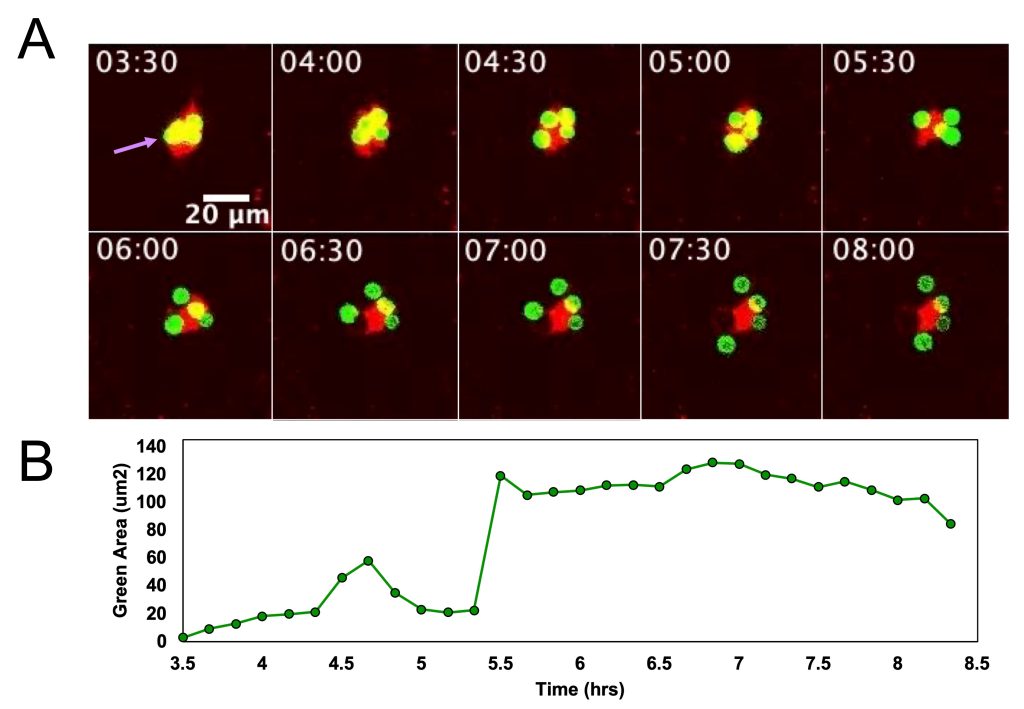Dr. Jamal Lewis, an associate professor at the J. Crayton Pruitt Family Department of Biomedical Engineering, has been awarded a prestigious $2M grant from the National Institutes of Health, specifically the National Institute of General Medical Sciences MIRA for established investigators, to further his research on Cryptococcal Vomocytosis. The grant, titled “Leveraging Engineering Approaches to understand Cryptococcal Vomocytosis from Immune Cells,” aims to delve into the mechanisms underlying this little-understood phenomenon.
 Cryptococcus neoformans (CN), a fungal species, poses a significant threat to immunocompromised individuals, particularly those living with HIV/AIDS. Lewis and his team at the Immuno-modulatory Biomaterials Laboratory focus on understanding how CN evades the body’s immune defenses, mainly through vomocytosis, a largely unexplored process.
Cryptococcus neoformans (CN), a fungal species, poses a significant threat to immunocompromised individuals, particularly those living with HIV/AIDS. Lewis and his team at the Immuno-modulatory Biomaterials Laboratory focus on understanding how CN evades the body’s immune defenses, mainly through vomocytosis, a largely unexplored process.
The research aims to decipher the intricate mechanisms involved in the interaction between Cryptococcus neoformans and innate immune cells, illuminating this relatively unexplored phenomenon through the use of engineering approaches and biological tools. Particularly relevant to Cryptococcal Meningitis (CM), a severe condition in which CN establishes an infection in the central nervous system, Lewis and his team aim to deepen our understanding of vomocytosis and pave the way for developing novel immunotherapeutics.
“Our long-term vision is to develop a microparticle platform that can be universally deployed to combat a range of immune and neurological conditions,” explains Lewis. “This could revolutionize treatment approaches for diseases where traditional therapies have fallen short.”
Lewis’ expertise lies in the development of immuno-modulatory biomaterials, with a focus on leveraging emerging biomaterial particulate systems for precise drug delivery to immune cells. His multidisciplinary approach integrates aspects of biomaterials engineering, drug delivery, immunology, biochemistry, and cell physiology.

